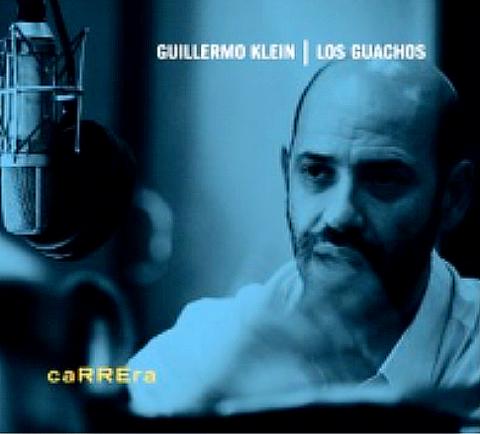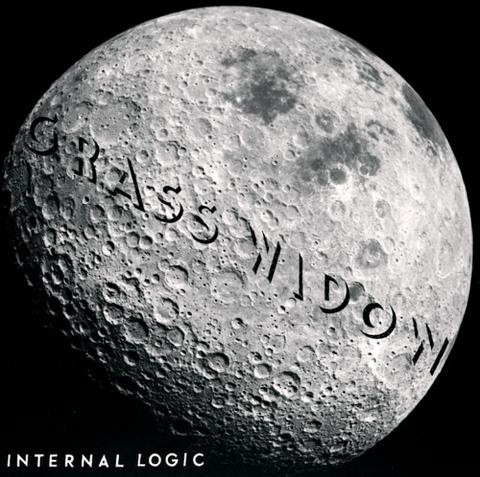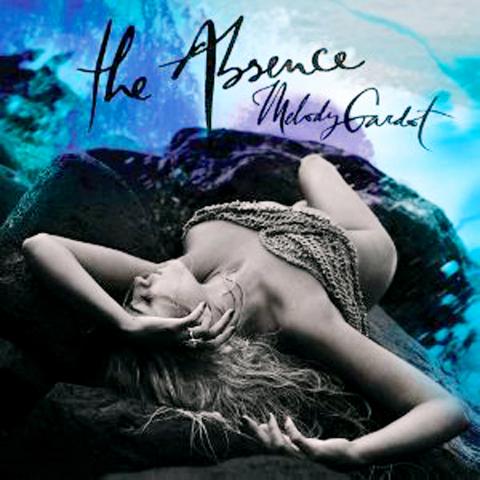From Day 1
Travis Porter
Teatro Carlo Felice, Genoa

Porter House/RCA
There’s beauty in diversity, sure, but there can be beauty in single-mindedness, too. Over the past few years the three men of the Atlanta hip-hop group Travis Porter — Quez, Ali and Strap — have become auteurs of the strip club, making buoyant, electrifying soundtrack music for late nights full of tossed-in-the-air dollar bills. What Too Short was to 1980s corner walkers, this group is to the modern-day pole dancer.
The apotheosis of the style was Make It Rain, originally released in 2010 and one of the great hip-hop anthems of recent years. A thumping, swerving, punchy number, it was salacious and comic in equal measure, a genuine triumph.

That song closes out From Day 1, the long-in-the-cooker major-label debut from this group, and it sets the tone as well. From Pop a Rubber Band to Wobble to songs with unprintable titles, these men know their milieu; they never met a stripper they didn’t want to rap about. This is an exuberantly raunchy album but also an intuitively musical one. Quez in particular has a mature gift for melody — he’s lighthearted in tone, adding a sense of fun to the proceedings. Ali can sound testy and saucy and Strap, with his rich accent, often sounds like he’s swallowing his words.
Songs like Ballin’, with their ostentatious swoops and turns in vocal delivery, recall rappers like Nelly and Bone Thugs-N-Harmony, Midwesterners who bent hip-hop into new shapes. And songs like Ayy Ladies offer more relaxed flirtation, away from the pole.
Only a pair of songs near the end of the album, Party Time and That Feeling, appear to be reaching for a broader idea, trading strip-club throbbing for pop-ear breeze. But here, the rappers sound loose, almost uncomfortable. They want to go back to the club.

— JON CARAMANICA, NY Times News Service
Carrera
Guillermo Klein and Los Guachos

Sunnyside
Guillermo Klein, the Argentine composer, arranger, pianist and bandleader, has long squared his art against a system of rhythmic convolution, cerebral and multi-layered but also bodily engaged. He hasn’t always had comparable use for strong, evocative melody, but his priorities seem to have shifted recently. Carrera, his captivating new album, contains some of his most tuneful work, without backtracking on any previous polymetric advances. The adjustment feels distinctly personal.
And maybe it is. Carrera largely consists of themes composed just before and after Klein’s return to Buenos Aires after a long stint in Barcelona, Spain. So on some level this is his homecoming album. It also follows his deep inquiry into the Argentine folklorist Cuchi Leguizamon, in performance and on the 2010 album Domador de Huellas. Melody was a core concern on that album, however Klein chose to reframe it.
His exacting, elastic band, Los Guachos, knows how to respond to even his most nuanced signals. But while some compositions here employ sly rhythmic subversions like the floating opener, Burrito Hill, and an arrangement of Alberto Ginastera’s Piano Sonata Op. 22 the band finds greater traction in lyricism.
So the tricky pulse of a ballad called Mariana, with its implication of five against four, all but dissolves in the face of an essay by Chris Cheek on tenor saxophone. Something analogous happens with another tenor, Bill McHenry, on a circuitous tune called ArteSano, and with the alto saxophonist Miguel Zenon on a flowing but urgent art song, Moreira, also featuring Klein on vocals.
Klein has been singing on his albums for years, in what often suggested a non-style, too casual and unpolished to seem otherwise. That’s different here too, especially on Globo, a melancholy ballad sung carefully in octaves with Zenon; and on a version of the tango standard Los Mareados, about star-crossed lovers attempting to drink away their fate. There have been many melodramatic readings of Los Mareados, but Klein wisely goes the other route: confiding, deliberate and direct.
— NATE CHINEN, NY Times News Service
Internal Logic
Grass Widow
HLR
The women in the San Francisco trio Grass Widow sing in clear and pretty harmonies over buzzing, nettlesome music — thin, staccato, slightly dissonant. It’s a group sound that’s counterintuitive all the time: reverbed and reassuring on the top, dry and interrogative on the bottom.
That’s a really good idea, but Grass Widow has stretched it about as far as it can go. Its limitations were apparent from the trio’s beginnings three years ago but seemed fresh or accidental. At this point, on Internal Logic, the band’s third full-length album, they amount to a kind of grim commitment. To what? To semiproficiency, to plainness, maybe even to the abrogation of pleasure.
Oh, it’s not as bad as all that. There’s been some growth. The vocal patterns among band members (the bassist Hannah Lew, the guitarist Raven Mahon and the drummer Lillian Maring) have become stronger and more careful, whether in unison, closer harmony or counterpoint. And the best of this album’s tightly composed songs — Under the Atmosphere, Spock on Muni — have moments of beauty in their choruses. But inasmuch as Grass Widow evokes bands from various postpunk movements since the late 70s — Wire, the Breeders, the Raincoats, Salem 66 — its selective approval of pop’s sweetness seems filtered through outside sources rather than felt firsthand.
Conceptually, Internal Logic is all set. But something’s missing here, and it’s something to do with music alone: sound, feeling, groove, attack, dynamics. The brittle, attenuated feeling of this album becomes wearying, like a three-course meal of nothing but grapefruit.
— BEN RATLIFF, NY Times News Service
The Absence Verve
An alternate title for The Absence, Melody Gardot’s spellbinding third studio album, might be “Wanderlust,” so immersed is it in the cultures of Portugal, Argentina and Brazil, places she visited in a protracted journey of musical discovery. The varying textures of songs, mostly written in English and Portuguese with some French and Spanish, are so fluid and finely tuned to the senses that listening to a song like Lisboa is like strolling through the city’s side streets captivated by the sounds of church bells and children at play while inhaling its exotic scents. The song whispers of history, of secrets sealed in ancient cellars and buried under cobblestones.
Gardot’s chief collaborator in this exploration of faraway places and the ebb and flow of erotic connections made during travel is the Brazilian-born session guitarist and film composer, Heitor Pereira. Pereira occasionally sings with Gardot in a voice that echoes Caetano Veloso and Joao Gilberto. On the love song, Se Voce Me Ama, their soft, husky murmurs mingle with an astounding intimacy.
Without quite settling into a particular style, the music embraces Portuguese fado, tango and light samba in acoustic guitar arrangements through which strings weave and in out as Gardot reflects on the vicissitudes of love. There is happiness: in the lilting Mira, she exults “in the joy that I feel like a sweet morning dew.” And there is deep sadness: in So We Meet Again My Heartache she embraces her yearning shadow self, the two “bound together by the breaking of a tired and torrid heart.”
Impossible Love acknowledges that even the flame of passion cannot burn brightly for very long. If I Tell You I Love You is the warning of a femme fatale not to believe her endearments. In the bitterly accusatory Goodbye, the album’s closest thing to a blues, she growls her contempt for a lover she regards as a naive fool.
The Absence is an album of seductive, mysterious atmospheres conjured by a pop-jazz singer whose audacity, raw talent and intense feeling recall the young Rickie Lee Jones, even though the two have little in common beyond a fierce individuality.
— STEPHEN HOLDEN, NY Times News Service

The canonical shot of an East Asian city is a night skyline studded with towering apartment and office buildings, bright with neon and plastic signage, a landscape of energy and modernity. Another classic image is the same city seen from above, in which identical apartment towers march across the city, spilling out over nearby geography, like stylized soldiers colonizing new territory in a board game. Densely populated dynamic conurbations of money, technological innovation and convenience, it is hard to see the cities of East Asia as what they truly are: necropolises. Why is this? The East Asian development model, with

June 16 to June 22 The following flyer appeared on the streets of Hsinchu on June 12, 1895: “Taipei has already fallen to the Japanese barbarians, who have brought great misery to our land and people. We heard that the Japanese occupiers will tax our gardens, our houses, our bodies, and even our chickens, dogs, cows and pigs. They wear their hair wild, carve their teeth, tattoo their foreheads, wear strange clothes and speak a strange language. How can we be ruled by such people?” Posted by civilian militia leader Wu Tang-hsing (吳湯興), it was a call to arms to retake

This is a deeply unsettling period in Taiwan. Uncertainties are everywhere while everyone waits for a small army of other shoes to drop on nearly every front. During challenging times, interesting political changes can happen, yet all three major political parties are beset with scandals, strife and self-inflicted wounds. As the ruling party, the Democratic Progressive Party (DPP) is held accountable for not only the challenges to the party, but also the nation. Taiwan is geopolitically and economically under threat. Domestically, the administration is under siege by the opposition-controlled legislature and growing discontent with what opponents characterize as arrogant, autocratic

When Lisa, 20, laces into her ultra-high heels for her shift at a strip club in Ukraine’s Kharkiv, she knows that aside from dancing, she will have to comfort traumatized soldiers. Since Russia’s 2022 invasion, exhausted troops are the main clientele of the Flash Dancers club in the center of the northeastern city, just 20 kilometers from Russian forces. For some customers, it provides an “escape” from the war, said Valerya Zavatska — a 25-year-old law graduate who runs the club with her mother, an ex-dancer. But many are not there just for the show. They “want to talk about what hurts,” she